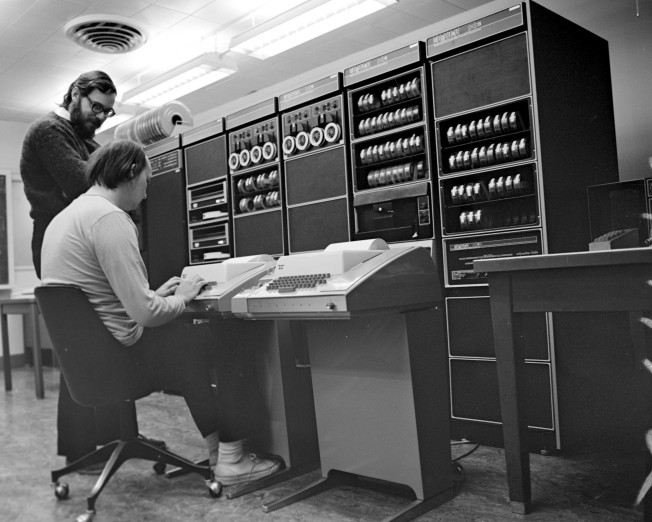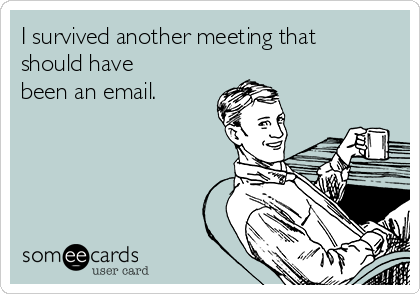
 Tom Fosdick
Tom Fosdick
Daily Lockdown Cat Picture Service
March 15th, 2020 I announced on Facebook that “if this situation gets worse and we do all end up in lock down, we have over 1000 of these and we fully intend to use them.”
Attached was this picture of one of our cats – because the Internet was made for cats, right?

One March 24th it did get worse and the UK went into full lockdown to try to slow the spread of the COVID-19 virus. Tanya and I decided to post one picture a day of our cats, just to try to give people a little smile. This is the archive of #dailylockdowncatpictureservice
Always Store Dates in UTC
It all went rather wrong in the early 2000s when we realised that the the last Sunday in October had two hours that both claimed to be 1am.

In the mid 1990s the company I was working for made an intelligent GPS radio modem. It was a neat little device that you could put in a car and it could do some basic processing, even run a small touch screen, and could communicate remotely with a central server.
We think nothing whatsoever of this today – the smartphone that most of carry all the time is way more capable than anything we were dreaming of then. In the 1990s however the idea that you could communicate with a vehicle and that it could tell you where it was, that was pretty cool.
Government organisations, in particular, were keen on us. There were other solutions on the market that were cheaper to buy, but we had the lowest running costs. Sending data across the airwaves was expensive and we spent a lot of time and effort to make sure that it was done as usefully and efficiently as possible.
For various reasons, some of which were historic, the Product Manager decided that it should operate in local time (including daylight savings time). Unfortunately it was also local time that got send back to the server. To make matters worse, to save on over-air costs, we cut the data right back to just the time. We didn’t include timezone or daylight savings information.
That might sound stupid now, but back then the primary business requirement was very much operational: customers wanted to know where their fleet was at that moment. Historical reporting was distinctly secondary.
My first job at the company was to change that, to develop a historical reporting function. That’s when we started to notice problems.
When British Summer Time switches back to Greenwich Mean Time we say that “the clocks go back”, we get to 2am and then we put the clocks back to 1am. Our intelligent radio modems faithfully did this, when they got to 2am they reset the clock to 1am. The result was that, in our database, we had two sets of records both claiming to be between 1am and 2am and it could be impossible to tell which was which.
If you’re a business this is a pretty irritating, but it’s something you can live with. When your customers are The Police and they need to know for evidential purposes where a vehicle was at any given time, this is a serious problem.
It was an easy enough software fix, to make the device always send the base time, not daylight savings time. Rolling those updates out and dealing with the potential data problems caused by the switch was far from trivial.
Hot on the heels of that problem, we then sold a system to a country that had multiple timezones.
Fortunately we predicted the problem this time. We locked ourselves in a room and went through every scenario we could think of, every way of working it and the conclusion we came to was that the date and time should always be sent and always stored in UTC. That way you know the data is always valid, it’s an absolute, there’s no question.
The situation has changed a little now because data storage and communication is much, much cheaper. There’s no reason for us not to send all the qualifying data. Back then however every single bit mattered.
As a systems integrator however I still run into problems with times quite a lot. Customers often tell me that this system works in UTC whereas some other system works in local time. They’re usually wrong, under the covers most systems either fully qualify the date and time or use UTC and convert for display. It’s not always the case though and APIs are not always explicit about it either.
My advice is simple: never store or transmit (internally) an unqualified time that is not UTC. If you’re using local time always make sure that it is qualified with the timezone information (including any applicable daylight savings). Never let the base time get separated from its qualifying data. This is still an easy mistake to make when writing to a database or transmitting via an API. If, for some reason, you cannot transmit or store the qualifying information, convert to UTC.
In the .NET Framework CLR there are 2 DateTime types that you should be aware of: DateTime and DateTimeOffset. Microsoft have produced some guidance on when to use which, (but basically use DateTimeOffset if you have the qualifying data, use DateTime for UTC).
The Last Landfill Christmas
It’s just common sense; December is a cold, wet, dark and miserable time of year in Northern Europe. That’s why just about every religion that’s taken hold here has put a big party some time around the Winter Solstice.
Christmas is supposed to be fun. It’s supposed to brighten up an otherwise miserable time of year. How then did we end up with this version of Christmas? The one where it’s a significant cause of stress? Where it’s become a big list of expectations and obligations? You must do this, do that, buy this, invite these people, visit those people, decorate your house so, buy presents, presents and more presents, send cards to the entire world and not go postal on the Salvation Army band when they turn Gaudete into a funeral dirge.
In 2009 I got so hacked off with the entire affair that I decided to celebrate by going on holiday – to a Muslim country. It was worth it, I came back with an entirely different attitude.
I took step back and began to ignore the billboards and the adverts and all the noise and listen to the language of Christmas: the stories; the songs and carols; the messages people send. It’s not about presents, it’s not about wrestling 9 other people by the games counter in Hamleys to try to get your hands on the last UK stock of this year’s must-have toy. There are literally no mentions of buying a new sofa to try to impress your relatives. For Christians it has specific religious significance. For the rest of us the messages of Christmas are of peace, of goodwill, of hope.
These are universal, whether you’re a Christian or not.
That’s what I learnt in Egypt a decade ago, where our hosts apologised constantly for not really understanding Christmas, but in fact embodied its true meaning far better than we do the UK.
This wasn’t the reason I wanted to write this article however: it was consumerism.
It was a suggested on a business programme I was watched not so long back that the average life of a Christmas present is two weeks. After that they get no significant use and ultimately end up as landfill waste. At first that seems ridiculous, I still have plenty of presents from years back that I still use and indeed treasure. However when I think about the amount of relatively low value presents I’ve received as tokens of people’s affection then the two week figure starts looking frighteningly plausible.
I didn’t know that in 2010, but I did know that my friends and I were getting an awful lot of crap we neither needed nor wanted. It was all given with the best of intentions of course, but most of it was disappearing shortly after Christmas to never be seen again. Consequently I came up with a plan: if I didn’t know a present that someone really wanted then I’d try to buy them something consumable. Wine, beer, theatre tickets, restaurant vouchers, hampers, etc. Things that they would definitely use and that would leave a very small footprint behind, if any at all. I’ve done that every year since.
Aside from not wasting money on crap that will get thrown away there’s another reason. In Europe we’ve made big efforts to reduce the amount of energy we waste and the amount of greenhouse gasses we produce.
In counting this however what we’ve failed to do is to account for the carbon footprint of the goods we import. Almost all cheap Christmas good are imported from other countries, countries where in many cases the energy and manufacturing systems have a much larger carbon footprint than ours in Europe.
Even if you put the environmental argument aside, if you’re buying cheap presents from a global online marketplace or a major chain store then the money is just disappearing out of your local economy and even out of the country.
You’re basically just giving Jeff Bezos your hard-earned cash.
What can we take away from this?
Buy from local small businesses. Not only does this improve your carbon footprint, it helps people in your community – and not just the business owners. You give the shop-keeper a £10 note, that gets paid to staff who use it in a restaurant that then uses it to pay a local farmer who then buys feed – the money stays local, benefiting people in your community. Buy something from Amazon and it’s gone.
Buy consumables for presents. Things people like to eat, drink; supplies for their hobbies; experiences you know they’ll enjoy.
OK, if you have kids I know this is difficult, but try not to be a Dursley. You know your kids, try to buy small numbers of high quality goods that you know they’ll really enjoy for a long time. Ignore the hubbub about this year’s must have toy. Most of that noise is created by the industry itself and most of those toys are rubbish. Remember that magazines, newspapers and web sites rely on advertising money. If the toy’s manufacturer is promoting it the media is going to be right behind it, even if they all know it’s rubbish. They’ll tell you that it’s the best thing ever, that everyone wants it and that you’re a bad parent if you don’t buy it. In the words of a band I rather like, Ignore the Machine.
Remember also that the experience of seeing your children thrilled and happy doesn’t always have to be met by a physical thing. If you have a special trip, holiday or experience planned, you can announce it at Christmas. With many items you can either make a kind of fake ticket or put the actual tickets in a fancy envelope and use that as a present.
Peace, Hope and Goodwill. You don’t have to be a Christian to understand the true meaning of Christmas. By far the greatest gift you can give is happiness. A big part of that is freedom; freedom from conflict, be that personal, regional or international. Freedom from the fear of conflict and war. Freedom from oppression and the fear of oppression.
Goodwill is the key to all of that.
You can give people peace by being kind and considerate towards them, showing them that they don’t have to worry about conflict and oppression.
You can give people hope by showing that you care about them, that you care about their future and the future of the planet.
…and, as Bill and Ted so wisely put it, Party On Dudes and Be Excellent to each other.
The Y2K Bug: Was It a Hoax?
I’ve run into a few people recently who’ve told me that the Y2K problem, aka The Millennium Bug was a hoax. In some ways the issue was, but let’s get one thing straight, the bug was very real and if we hadn’t done a hell of a lot of work to fix it, things would have gone catastrophically wrong.
What was the problem then? In the 1950s every tiny piece of computer storage was critical. Programmers were always looking for ways to store and process information more efficiently. They didn’t think for one moment that their code would ever have to deal with the year 2000, so they decided to lop the “19” off the front of the year and just store the last 2 digits. 1958 was actually stored as “58”. If the user needed to see the full year then many systems simply printed “19” before the 2 digit year.
This wouldn’t have been much of a problem if it hadn’t made it out of the 1950s. Unfortunately every new generation of the tech industry builds on previous generations. Not only did the 2 digit year become a kind of industry standard, it also got baked very deeply into the code that actually ran the computers themselves.

By the time the 1990s rolled around there was an awful lot of computer code about and people started to realise that a lot of it was going to have to deal with the year 2000.
Suddenly You Find You’re Not Insured…
Let’s look at an example. Let’s say you renew your car insurance. The new policy starts on January 2nd, 1999. Now, you’ve been lucky, this computer program uses 4 digit years so you correctly see your expiry date as January 1st, 2000.
Unfortunately the database that all the records are stored in only uses 2 digit years, so the system writes a start date of 02/01/99 and an expiry date of 01/01/00 into the database.
The problem is obvious: when that record is read back the system will correctly convert 02/01/99 to January 2nd, 1999, but it will wrongly convert 01/01/00 to January 1st, 1900. Congratulations, as far as that computer system is concerned you’re not insured.
In that simple example you’d hope that, at some point, a human would see it and realise something had gone deeply wrong. The problem is that, even in 1999, there was an awful lot of processing going on, in financial systems even in safety critical systems, before the results ever got anywhere near a human.
The Ariane 5 rocket explosion was caused by a similar problem. The guidance system was capable of producing a much higher number than the main computer could deal with. This hadn’t been a problem on Ariane 4 because it couldn’t do anything to cause such a number to be generated. Ariane 5 however could and 37 seconds after main engine ignition on June 4, 1996, it did, ultimately causing the rocket to self-destruct.
That’s why we had to fix the Y2K bug, because pretty much everywhere there was a date in computer code there was potential for things to go badly wrong.
It Wasn’t Just Dates…
What’s more, it wasn’t just the obvious cases we had to worry about. There were more subtle implications of the bug. Consider the following output from a little example program I wrote. It gives you the expected arrival time of a plane and its current altitude both in feet and metres.
SIGN DATE TIME ALT(m) ALT(ft)
Y2K00 1990/11/01 00:00 5000 16384
Y2K01 1991/11/01 00:35 4900 15872
Y2K02 1992/11/01 01:10 4800 15616
Y2K03 1993/11/01 01:45 4700 15360
Y2K04 1994/11/01 02:20 4600 14848
Y2K05 1995/11/01 02:55 4500 14592
Y2K06 1996/11/01 03:30 4400 14336
Y2K07 1997/11/01 04:05 4300 14080
Y2K08 1998/11/01 04:40 4200 13568
Y2K09 1999/11/01 05:15 4100 13312
Y2K10 19100/11/01 05:50 4000 49
Y2K11 19101/11/01 06:25 3900 49
Y2K12 19102/11/01 07:00 3800 49
Y2K13 19103/11/01 07:35 3700 49
Y2K14 19104/11/01 08:10 3600 49
There’s one thing you might expect, that when it got to the year 2000 it printed out 19100. The program stores the date as 2 digits and simply prints “19” in front of them. That was a pretty typical Y2K bug: the 2 digit year ticks over from 99 to 100 and it gets printed as “19100”.
What might be surprising is that after the year 2000 it completely screws up the calculation of how high the plane is in feet. The calculation before the year 2000 is (approximately) right. Afterwards it just prints “49” however high the plane is.
This is because, when I wrote the program, I only allocated enough storage for 2 figures in the year. When it came to after the year 2000 however, the program wrote 3 figures regardless. What it did was to write the extra “1” to some storage that was being used for something else – in this case to store the height in feet. 49 is the value a computer would send to the screen if it wanted to print the number 1.
Again, in my little program this gets printed to the screen and you’d hope that someone would notice. What it highlights however is that the problem caused can be somewhere else in the code and affect something other than just the date. This corrupted value could be the radiation dose of a chemotherapy patient and it might never get seen by a human before its delivered…
I hope that makes it abundantly clear that the Y2K bug was very much real and that the consequences could very definitely have been catastrophic. The idea that the bug could have caused planes to fall out of the sky is not and was not scaremongering. It was entirely possible. Indeed if we had somehow sleep-walked through to the closing minutes of 1999 without realising there was a problem it was a relatively likely consequence. We did however realise and we did a hell of a lot of work to fix the problems.
Now of course it’s true that the press over-hyped the situation. The headline “Renowned industry expert says that thanks to years’ worth of effort it’s now exceedingly unlikely that there will be any critical incident in the aviation sector” doesn’t make much of a headline. “Boffin says planes could fall from sky” is going to sell many more newspapers.
On the back of that hype there was also the predictable bunch of spivs and con-merchants offering to Y2K-proof your toaster. I’m sure you get my point; some people capitalised on the ignorance and panic by spreading more misinformation and making a pretty penny out of fixing things that didn’t need fixing.
That doesn’t lessen however the seriousness of the real underlying problem. It was, as they say, “a biggie”.
So It Definitely Wasn’t a Hoax… Or Was It?
There is however a certain thread of logic that says, even considering everything I’ve written, it was still a hoax. It’s a line of argument I actually quite like. For the tech industry it certainly wasn’t a hoax, it was very real indeed. For the government too – the government needed to make sure that adequate provisions were being made to fix it, to mitigate any remaining risk and deal with any problems arising.
As far as the general public were concerned however, they were never actually exposed to any significant level of risk. It was inevitable that we – the tech industry – would fix all of the serious issues well before they came into play. There was nothing that the people on the Clapham omnibus needed to worry about. In fact, being perfectly brutal about it, there wasn’t really any need for them to ever know about the problem at all.
Much as I like it, I don’t entirely subscribe to that school of reasoning. Even as midnight ticked over we couldn’t be sure that we’d fixed every critical bug. There was still a risk of things going badly wrong and the general public needed to be aware of that.
There’s also an argument that it was public awareness that actually made a lot of the tech industry sit up and take notice :- that’s when the senior management of these businesses finally realised that what the technical people were saying was right.
Did we need people predicting that planes would fall from the sky and toasters would stop working though? No, we definitely didn’t. What we needed was common sense. What we got was the British Press.
Perl: The Lazy Way to Write WPF
I hate writing boilerplate. Recently I was writing a test tool where I needed to be able to build messages from a WCF interface. That’s a lot of ViewModels and a lot of views and a lot of tedious typing.
That is, of course, unless it’s Friday lunchtime and you happen to have spent the first half of your career working on *nix systems. Enter Cygwin and some now rather sketchy memories of how to write Perl.
$ perl -ne \
'if($next) \
{ \
$_=~/^\s+void\s+(\w+)\s*(([^\)]+)\)/; \
$cType=$1; \
print "public class ${cType}Model:DependencyObject\n{\n"; \
@props=split /,\s+/,$2; \
foreach $p (@props) \
{ \
($type,$name)=split /\s+/,$p; \
$name=~s/^([a-z])/\U$1/; \
print "public static DependencyProperty ${name}Property = DependencyProperty.Register(\"${name}\",typeof($type),typeof(${cType}Model));\npublic $type $name\n{\nget => ($type)GetValue(${name}Property);\nset => SetValue(${name}Property, value);\n}\n"; \
} \
print "}\n"; } ; \
$next = /\[OperationContract\]/ ;' \
< IClient.cs >../../../../../Models.cs
I then just used ReSharper to move the classes into their own separate files.
Yes, I realise that the little snippet of Perl is very poorly written, both from the point of view of its fragility in processing C# and also because these days I really only use Perl for one time lash-ups like this. It’s be 15 years since I could say that I wrote Perl in any professional sense and I’ve forgotten a lot in that time.
My point however isn’t to provide a shining example of Perl for you to cut and paste. It’s to point out that a few lines of text processing script in whatever language, written in a few minutes, can save you from a whole load of tedious typing.
I use Cygwin a lot in programming, because utilities like find, xargs, grep, sed, awk, cut, uniq and bash scripting itself can save a heck of a lot of time.
If you’re not an old *nix wonk like me however all is not lost. Perl can do pretty much everything anyway and there are plenty of Perl implementations for Windows.
Of course there is the world of Powershell too and that’s where I have a confession to make. Aside from learning the basics; just enough to do what I need to do, I haven’t really delved into Powershell. I’m sure Microsoft have put a lot of research into it, but to me it feels really awkward, like you’re always having to jump through hoops to get even the simplest thing done.
I realise the potential hypocrisy of this, Despite being notoriously counter-intuitive, vi has become second nature to me. It’s only when I try to explain to others that I remember that if you’re not thinking about trying to operate an editor over a 300 baud serial link then none of it makes any sense at all.
Anyway, I digress, the simple conclusion is that if you’ve got a mountain of boiler-plate to write, have a think about using some sort of script. There’s a lot of power in your fingertips.
Racism Is Hard-Baked Into White People
It hit me like a train when I realised that one of my toughest battles against racism would be with myself, simply because of the environment I grew up in.
— Tom Fosdick 🏴🇬🇧🇪🇺 (@sinibar) August 1, 2019
My parents were against racism, my schools were against racism. 1/6
In fact all the institutions I dealt with were [or claimed to be] against racism. They were however white. Books were white, TV was white, culture was white, science was white, the law was white, power and influence were white. That gets baked into you whether you like it or not.

Why was there a brouhaha when black actress (Noma Dumezweni) was cast as Hermione Granger in The Cursed Child? Because people, many of whom would say they were against racism, just assumed Hermione was white.
Rowling‘s description of her doesn’t specify or even imply: it is distinctly indistinct. Instead it concentrates more on her character and how clever she is. We – me included – just assumed she was white. Why?
Because she’s privileged, because she’s bookish, because she’s clever, because she’s powerful, because she’s a heroine. All these cues refer back to the environment most Westerners grew up in and they all tell us that she’s white. We don’t think about it, we just assume it.
We might not think this matters because we think we make all important decisions consciously where we can weigh up the evidence objectively. That however is far from the whole picture. We make thousands of decisions every day without them ever fully surfacing into our consciousness. Similarly we send out thousands of signals that we’re not consciously aware of.
Those biases that have been baked into us by our upbringing do still have an effect, a very subtle effect, but it’s there nonetheless. If it’s just one person then it’s insignificant, the problem is that we’re not just one person, those of us who grew up in an almost exclusively white environment are a majority. On top of this almost everyone in the UK grew up – and continue to grow up – in an environment where the vast majority of significant institutions are predominantly white.
What can we do about it? We can’t undo decades of programming simply by wishing it away. There is no silver bullet. We have to acknowledge that it’s there, to be aware of it. We have to be aware that no matter how much we believe in equality, we can occasionally be guilty of accidental racism. We have to accept that, for people with my kind of upbringing, just being ideologically opposed to racism is not enough. If we are not actively fighting against racism then we are subconsciously contributing to it.
We have come a long way to eliminate conscious racism from the majority of the Western World. We still have a battle to fight, especially at the moment, but we are making steadily making progress and in the end we will win.
Not That Kind of Router
I have to admit I’m struggling with this one. Usually I can find some kind of spin, some kind of humour, some way of making a very boring subject a little easier to read.
I think with this one I’m just going to have to put on my anorak and face facts: there’s nothing really interesting in this story. It is what it is, but it does have a mildly uplifting conclusion. At least I can tease you with that.

Many years ago I bought a cheap router; the kind that you use for machining grooves in wood, not the kind that hurls packets down the right network pipe. I was fitting out a room with a load of custom built cabinets and I figured if it lasted for just that job I’d not be too bothered.
It lasted a bit longer than just that job, about a decade longer.
A few days ago however it had a problem. I was cutting a chamfer on a roof panel when the motor suddenly slowed and there was a fireworks display in the top.
“It’s done well” I thought to myself and started looking at the price of half decent routers. Ouch!
I’d just assumed that there’d be no way to fix a cheap router like that. There’d be no way to get the parts! Nevertheless I popped the top off and had a look and to my surprise I found that the brush assemblies just slid out and that the brushes themselves were easily replaceable.
A quick visit to Ebay later…

Then it was just a case of slotting them into the housings. In the picture beneath the right one’s done, the left is the old, worn out one.

Then popping them back where they should be.

The exciting moral of the story is not to assume that you’re going to have to throw something away just because it’s developed a fault. The Internet – and in particular ebay – has given us access to millions of parts for all sorts of things. It’s always worth looking.
Primordial Radio Data Usage
The question of how much data allowance Primordial Radio uses has been asked a few times.
The simple answer is about 30 megabytes per hour, which means 1Gb of data will last you about 33 hours.
If you’re interested, the not so simple answer goes as follows.
Primordial are cunning, they use a 63KBit AAC stream. The bit rate is, quite literally, how much data per second the stream uses. The higher the bit rate, the higher the quality of audio that can be squeezed in. It’s a trade-off between data and quality. But there’s another factor – the technique used to encode the audio.
If Primordial used a 63Kbit MP3 stream it would sound dismal, because MP3 is actually a pretty old and inefficient audio encoding technique. Because they use AAC, they can get away with a much lower bit rate, which keeps the amount of data you need to use to listen to Primordial low and the quality acceptable.
BBC Radio 3, in comparison, have a 320Kbit AAC stream (amongst others). You can get your Classical Music fix in super-high quality, but it will munch 150 megabytes per hour.
Now, the relationship between the bit rate and the amount of data it uses isn’t entirely straightforward. In data transmission we tend to talk about bits per second and when we talk about data allowances they’re in bytes, or more likely Gigabytes.
Your broadband connection, for instance, is almost certainly specified in Megabits per second. Long story short, the reason is that the bit is the smallest thing that can be sent, so it’s most accurate to talk about the speed of a connection as bits per second.
A byte is almost always 8 bits, but some types of communication use extra bits to regulate the transmission, so it’s not always a straight 8 from bits per second to bytes. It’s close enough for a ready-reckoner though:
63 / 8 = 8 (roughly)
We need 8 kilobytes of data for one second of audio. We can then easily multiply that up.
8 *60 = 480Kbytes per minute
480 * 60 = 28800Kbytes per hour
A megabyte is 1024 kilobytes, so:
28800 / 1024 = 28Mbytes (per hour)
This, however, is always going to be optimistically low. Firstly there is the problem of the envelope. Data over The Internet is sent in billions of packets. You can think of each packet like a… um… packet. You can’t just lob a bottle of Hendricks in the postbox and expect it to get anything other than drunk by the postie. You need to wrap it up in something, put an address on it and pay postage if you want someone to actually receive it. There are similar overheads on the The Internet.
There are various different systems in use, often there are several layers of content and packets. This means that there is a lot more traffic on The Internet than just the useful data.
There is also the problem of packet loss. A small amount of data on The Internet just disappears. This is actually expected, it was designed that way because it’s easier and more resilient. What it does mean however is that a small amount of data has to be sent twice.
You can pretty much account for all this by simply adding a fudge factor. 20% is usually considered a safe margin. If we take our theoretical figure from earlier:
28 * 1.2 = 33.6MBytes per hour.
This, of course, is an estimate based on a bit of theory and some practical experience. If you don’t trust these kinds of calculations, you could just look at the speed on your router’s data rate table.

If you wanted a bit more accuracy though, you could listen to Primordial for, say, 1/4 hour, record the amount of data every packet contained and the overall length of the packet, then add them all up.
You’d have to be a right geek to do that though.
The total data received was 8150537 bytes, of which 7247617 was useful content. Those can pretty easily be multiplied up to an hour:
Total audio and related data: 27.65 megabytes per hour.
Total data exchanged: 31.1 megabytes per hour.
Naturally I can’t guarantee these figures absolutely. They’re over Wi-Fi rather than a mobile network and there will be differences. There will also be differences between different networks and even different times of day as The Internet itself changes and adapts to the traffic.
What I can say is that they should be somewhere near, within a few percent.
The Healthy Business Traveller’s Survival Guide

Tonight’s bed is in a characterless chain hotel just off the M1. Like every business hotel, the bar is stuffed full of regretful corporate peons in cheap suits. It’s a club that’s far too easy to join. At first you’re only away for the odd night, so it doesn’t matter if you have a burger and a couple of pints.
It creeps up on you though, a few nights here and a few nights there and suddenly you buy and Audi A4, can’t see your feet when you’re standing up and find yourself discussing house prices with a Regional Business Development Manager from Nuneaton.
“It’s really hard to keep up the diet when you’re on the road” I hear time and time again from the person loading their plate with fried sausages and hash browns. They look down at the bowl of muesli and fruit I’m holding then briefly catch my eye again before they awkwardly shuffle off to join a table of 3 others, all with plates piled high, all wearing the same expression.
It’s not about the diet though, it’s about the choice of lifestyle: they’ve subscribed to the road warrior lifestyle; “You’ve got to play the game, Tom, you’ve got to play the game” one of them once told me. He never could tell me why.
You can join that world if you want to. It’s kind of cool for a while, but it starts getting old very, very quickly. You don’t have to join that world. You don’t have to play that game.
Here then are my tips for not getting sucked into that cycle of drudgery.
Eliminate Unnecessary Travel

Rule 1: if you don’t need to travel, don’t travel.
The face-to-face meeting is still the default for an awful lot of people. If there’s any doubt about anything then they want to get all the people in a room and talk about it. It’s a reflex, often no more than arse-covering, but it often results in a lot of people wasting a lot of time.
Of course there are occasions when it’s the right thing to do and it’s right that you should be there. Otherwise however it’s better for both you and the business if they conference you in only for the bit where you’re actually needed.
The key point is that travel is often not the most efficient use of business resources, it’s just an assumption that you – or someone – should go. Question that: if it’s not the best use of resources put the case for why.
Choose The Right Hotel
There are many employers that give you some flexibility about the hotel you book. In which case always book a hotel with a free gym and free breakfast.
Being away on business is a good opportunity to visit the gym. Not only that but being away from home is stressful and exercise is proven to combat stress and anxiety. Remember to pack your gym kit though eh? And a water bottle is useful too.
In the morning, always choose the healthy breakfast option. Start how you mean to go on. This is where the free breakfast comes in: many hotel chains lower their room rate but don’t include breakfast, You book them thinking you’re getting a bargain and then find they’re charging £18 for breakfast. Even though you’re not paying, the idea of shelling out 18 notes for a bowl of muesli and banana irks, so if you’re not careful you head for the buffet and have a Full English.
Don’t do it. Book the more expensive hotel and have the muesli and banana.
Whilst we’re on the subject of hotels, pay attention to the distance the hotel is from the place you’re visiting. The cost to the business of having you stuck in traffic for an hour is £50 as an absolute minimum. It could be many times that. Saving £10 to spend and extra 1/2 hour in traffic isn’t worth it. I’ve justified trampling on various hotel booking policies many times this way.
Supermarkets Are Your Friends
Get control of your food. Buffet lunches these days are better than they used to be, but be careful. Work out how much you usually eat for lunch and don’t got over that. If it feels socially awkward not to have food, grab a glass of water.
Similarly if there’s a canteen, don’t get sucked into having 2 main meals that day.
If lunch isn’t laid on, make sure you bring some. Otherwise it’ll end up with someone doing a run to Joe’s cafe at 2pm for a large sausage and meatball butty.
There are some pretty good petrol stations these days with mini supermarkets in. They often have good healthy meal options. Either make your own lunch or buy your lunch in advance.
Keep some travel cutlery into your day bag. That vastly increases the amount of food you can eat.
When it comes to dinner, some hotels have good options and if you’re staying in an urban centre there can be good options there, too.
Otherwise buy some cold food from – you’ve guessed it – a supermarket. Then you can make sure that you have a balanced intake with the right amount of calories.
If you’re really inventive there are actually quite a few cooking options in a hotel room, you can do a lot more than Pot Noodle.
Don’t forget drink. I don’t usually drink as much liquid when I’m away, so I’ll buy at least a litre of flavoured water per night.
Whilst we’re here, stay away from the extra-large chai latte, from fizzy drinks and especially from energy drinks. This isn’t just a travel tip, it’s a life tip. They put you on a roller-coaster that you really don’t need to be on.
Plan Your Evenings
You’re in a disappointing room near a disappointing town in a disappointing hotel commanding disappointing views of a disappointing motorway. This is a really good time to sort out your car insurance and catch up on a couple of episodes of that TV series that you love but which your partner hates.
This requires forethought however. You need (copies of) the documents or access to them online.
Never rely on hotel WiFi. Sometimes it works brilliantly, other times you can barely get to Google. Make sure you have anything you want to watch or any substantial document on a device you have with you.
Pack a HDMI cable if you carry a laptop. Most hotel TVs have a HDMI input that you can use, whether they advertise it or not.
If you rely on a mobile device then pack a Chromecast or similar, you can put it into guest mode and stream to the room’s TV.
Plan Driving Breaks
Live traffic Sat-Navs and automated reminder services are pretty good at estimating how long it will take you to get somewhere. That time doesn’t include breaks. Driving requires concentration and that means you need breaks. It’s is, quite literally, for your health and safety.
Don’t mess with your meal times too much and, especially, never miss a meal. If you usually eat at 12:30 then try to make a break fit in around that time and have a bite. Again, stay away from burger chains and greasy spoons. There are plenty of healthy, tasty food options in service stations these days.
Keep a Travel Bag
One of the really annoying things about travelling is the continual packing. It helps if you have a spare set of toiletries in a bag that you can just throw in and know that you don’t have to worry about deodorant, toothbrush, etc.
It’s not just toiletries either, there are a few other things:
Buy a warm high-vis jacket and keep it in the boot. Your car is lovely and warm when it’s working, but the engine management unit has a problem with its lifestyle it can get very cold very quickly. A warm hi-vis jacket kills 2 birds with 1 stone. I got mine – and in fact most of my safety equipment – from Arco (and no, they’re not a sponsor).
Include a USB extension cable. These are surprisingly useful, not in the least because hotels have a funny habit of putting the electrical sockets as far away from the bed as possible. Your phone however you generally want to both charge and use as an alarm.
A mobile phone power bank is another good investment. You might think you’ll be near a socket all day and all night, but if you get stuck in meetings then get a particularly unfortunate room, it can get dicey.
Finally, Look After Yourself
Above all remember that you and your health are the most important things. Don’t compromise that. You don’t have to get sucked into the business travel lifestyle.
It is a profoundly unhealthy lifestyle and this is worth remembering not just for your own sake but for that of your employer. There’s a reason many employers offer private health schemes, gym memberships and other health related benefits. It’s an investment on their part, because healthy people work more effectively and more efficiently.
It’s good business sense for your employer to let – even encourage – you to keep yourself healthy.
Moreover it’s an investment by you. You only have one life and if you compromise your health now you will pay for it later, financially, physically and emotionally. When it comes down to it, it’s as simple as that.
